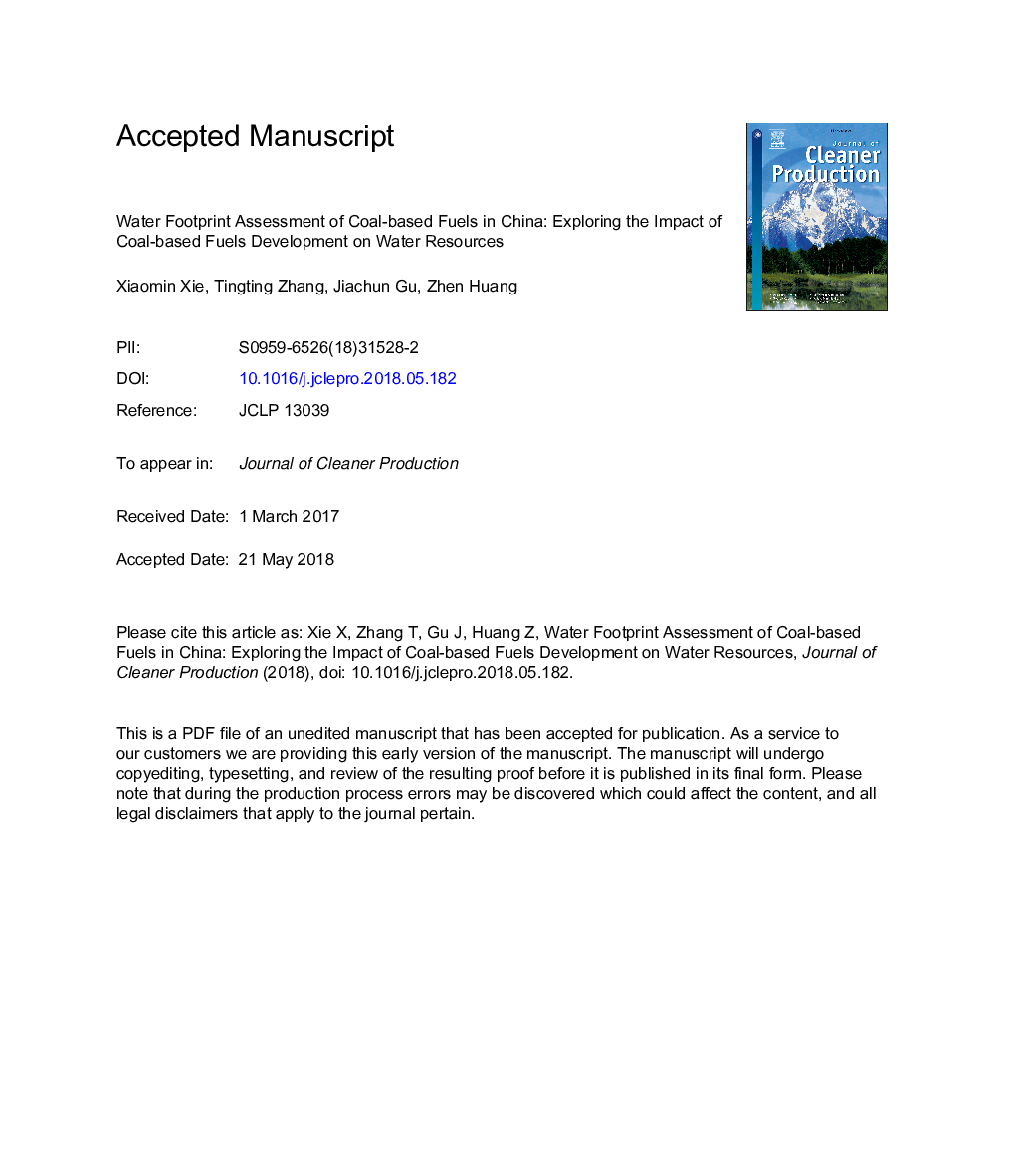| کد مقاله | کد نشریه | سال انتشار | مقاله انگلیسی | نسخه تمام متن |
|---|---|---|---|---|
| 8093892 | 1522057 | 2018 | 38 صفحه PDF | دانلود رایگان |
عنوان انگلیسی مقاله ISI
Water footprint assessment of coal-based fuels in China: Exploring the impact of coal-based fuels development on water resources
ترجمه فارسی عنوان
ارزیابی راندمان آب زغال سنگ در چین: بررسی تاثیر توسعه سوخت های زغال سنگ بر منابع آب
دانلود مقاله + سفارش ترجمه
دانلود مقاله ISI انگلیسی
رایگان برای ایرانیان
موضوعات مرتبط
مهندسی و علوم پایه
مهندسی انرژی
انرژی های تجدید پذیر، توسعه پایدار و محیط زیست
چکیده انگلیسی
During the last decade, and despite the fact that energy consumption and GHG emissions still remain today the focus of many alternative fuel life cycle assessments, water scarcity issues have increasingly received attention. This study is intended to evaluate the life-cycle water footprints (WF) of coal-based fuels including direct coal to liquid (CTL) fuels, indirect CTL fuels, coal-based methanol, and coal-based dimethyl ether (DME). Furthermore, the impacts of coal-based fuels' development on the local water resources were also estimated. The results indicated that the life cycle WF of direct CTL, indirect CTL, Methanol and DME were 2.59â¯kg/MJ, 2.97â¯kg/MJ, 4.13â¯kg/MJ and 3.22â¯kg/MJ, respectively. Grey WF accounted for more than 80% of the total life cycle WF for these coal-based fuels. It is estimated that the total water demand is 6177 million cubic meters if 90.6 million tons of coal-based fuel production capacity is fully achieved in China. Regional analyses revealed that Coal-based fuel development in provinces such as Ningxia, Inner Mongolia, Shaanxi, Guizhou and Shanxi could have a significant impact on local water supply and potentially displace other users, especially for Ningxia province, which suffers from extreme water shortage. Xinjiang have appropriate water resources and capacity for future development of coal-based fuel production. Waste water treatment, strict environmental regulations, monitoring capacities, and legal oversight could serve as effective measures to reduce water environmental impacts caused by coal-based fuel development. Promotion of supply chain management and increasing the production of value added byproducts are good way to reduce the life cycle WF of coal-based fuel by increasing the comprehensive energy efficiency. Greater integration of energy and water-related policies are required in China for sustainable alternative fuel development.
ناشر
Database: Elsevier - ScienceDirect (ساینس دایرکت)
Journal: Journal of Cleaner Production - Volume 196, 20 September 2018, Pages 604-614
Journal: Journal of Cleaner Production - Volume 196, 20 September 2018, Pages 604-614
نویسندگان
Xiaomin Xie, Tingting Zhang, Jiachun Gu, Zhen Huang,
